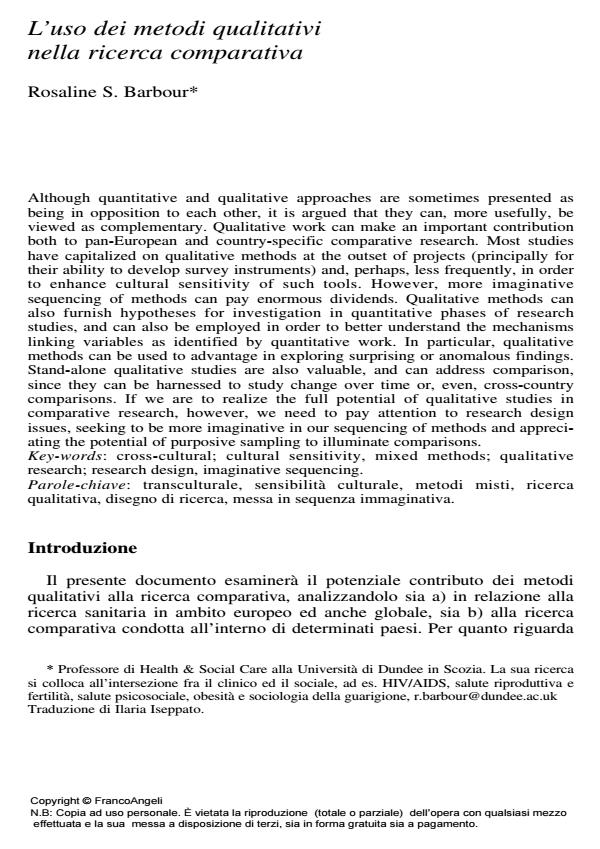Using qualitative methods in comparative research
Journal title SALUTE E SOCIETÀ
Author/s Rosaline S. Barbour
Publishing Year 2010 Issue 2010/Suppl. 2
Language Italian Pages 17 P. 68-84 File size 296 KB
DOI 10.3280/SES2010-SU2005
DOI is like a bar code for intellectual property: to have more infomation
click here
Below, you can see the article first page
If you want to buy this article in PDF format, you can do it, following the instructions to buy download credits

FrancoAngeli is member of Publishers International Linking Association, Inc (PILA), a not-for-profit association which run the CrossRef service enabling links to and from online scholarly content.
Although quantitative and qualitative approaches are sometimes presented as being in opposition to each other, it is argued that they can, more usefully, be viewed as complementary. Qualitative work can make an important contribution both to pan-European and country-specific comparative research. Most studies have capitalized on qualitative methods at the outset of projects (principally for their ability to develop survey instruments) and, perhaps, less frequently, in order to enhance cultural sensitivity of such tools. However, more imaginative sequencing of methods can pay enormous dividends. Qualitative methods can also furnish hypotheses for investigation in quantitative phases of research studies, and can also be employed in order to better understand the mechanisms linking variables as identified by quantitative work. In particular, qualitative methods can be used to advantage in exploring surprising or anomalous findings. Stand-alone qualitative studies are also valuable, and can address comparison, since they can be harnessed to study change over time or, even, cross-country comparisons. If we are to realize the full potential of qualitative studies in comparative research, however, we need to pay attention to research design issues, seeking to be more imaginative in our sequencing of methods and appreciating the potential of purposive sampling to illuminate comparisons.
Keywords: Cross-cultural; cultural sensitivity, mixed methods; qualitative research; research design, imaginative sequencing
Rosaline S. Barbour, L’uso dei metodi qualitativi nella ricerca comparativa in "SALUTE E SOCIETÀ" Suppl. 2/2010, pp 68-84, DOI: 10.3280/SES2010-SU2005